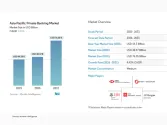
Ageing population to drive insurance take-up in South Korea
For 2025, $167.1b in direct written premiums are expected to be amassed by insurers.
The South Korean insurance industry is expected to log $191.2b in direct written premiums (DWP) by 2029 on the back of the ageing population drives demand for health insurance, life insurance, and pension, according to a report by GlobalData.
This translates to a compound annual growth rate (CAGR) of 3.4% over the next four years, the data and analytics company said.
For 2025, DWPs is forecasted to reach $167.1b, extending the expansion expected in 2024.
“The South Korean insurance industry contracted by 7.5% in 2023 due to slower economic growth which impacted the demand for life insurance products. The growth is expected to bounce back in 2024, supported by a recovery in economy and increase in ageing population,” said Sneha Verma, insurance analyst, GlobalData.
Growth will be supported by changing demographics, which GlobalData said will lead to an increase in demand for health and retirement pension products.
Amongst segments, life insurance and pension is expected to account for 84% of the share of premiums in 2024. Life insurance and pension is expected to grow at a CAGR or 3.1% during 2025 to 2029.
Life insurance will grow 0.5% in 2024, from a 9.3% contraction in 2023.
Demand for health insurance, meanwhile, will also increase on the back of rising case of life-threatening disease, Verma said, noting that the number of dementia cases in South Korea has risen to one dementia patient identified every 12 minutes.
General insurance will account for the remaining 16% share of the DWP in 2024. The segment is expected to grow by 4.9% in 2024, expanding from the 4.1% growth in 2023.
General insurance is expected to grow at a CAGR of 5.1% from 2025-29.
Motor insurance, which is the leading line of business in the general insurance segment, is expected to witness a flat growth in 2024, due to declining vehicle sales.
Weak consumer sentiment driven by economic slowdown and high interest rates have slowed down the sales for new vehicles.
South Korea’s position as a natural-catastrophe prone country will support demand for policies covering fire and natural hazards.



















 Advertise
Advertise






